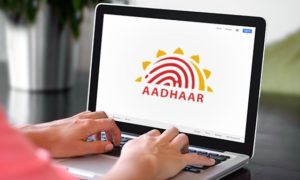ICICI Bank has a warning for its customers. The country’s second largest bank is warning against extortion scams where cybercriminals send threatening messages to individuals or organisations demanding payment in exchange for not releasing sensitive or embarrassing information. The bank is educating its customers about the scam via an email.
Read More: Forget Your Aadhaar Card At The Airport? Here’s Your Solution!
What is an extortion scam?
Extortion scams start with an e-mail that typically claims that the sender has compromising information, such as private photos or personal data of the recipient. The sender threatens to share it with the recipient’s friends, family or the public unless a payment is made.
The goal of these e-mails is to scare the recipient into paying the demanded amount, even though there might not be any compromising information to release.
Read More: Big Relief! Tax Exemption on Savings Account Interest? Here’s the Latest on Budget 2024
How to spot an extortion scam?
In its email, ICICI Bank highlights some of the warning signs that can help spot a scam. These could be a call, message or an e-mail unexpectedly from someone claiming to be from a government department, debt collection agency or trusted company.
The caller will claim that you owe money and threaten you with legal action or arrest. He/she will further tell you that to fix the matter, you will need to pay a fee or fine. It may also ask for your personal information, such as your passport details, date of birth or bank information. To create false urgency, the caller may claim that the police will come to your doorstep and arrest you if you do not pay the fee or fine right away.
Read More: e-Shram Card: A Step-By-Step Guide To Online Registration
Steps to protect yourself from online scams
Some of the measures are:
- Don’t be pressured by a threatening caller asking for money. Hang up and don’t respond
- Don’t pay anyone by unusual methods such as gifts, hampers, vouchers or wire transfers
- Don’t use any contact details provided by the caller. Verify their identity by calling the relevant organisation directly. Go to the organisation’s official website and search for the contact details
- Do not respond to texts or e-mails. If you do, the scammers will increase their extortion attempts to get your money.
- Never send money or give credit card, online account details or identity information like your driver’s licence or passport to anyone you don’t know or trust. Never share them by e-mail or over the phone
- If the scam is sent by e-mail, don’t open any attachments, don’t click on links and never download files. They can infect your computer with malware.





































